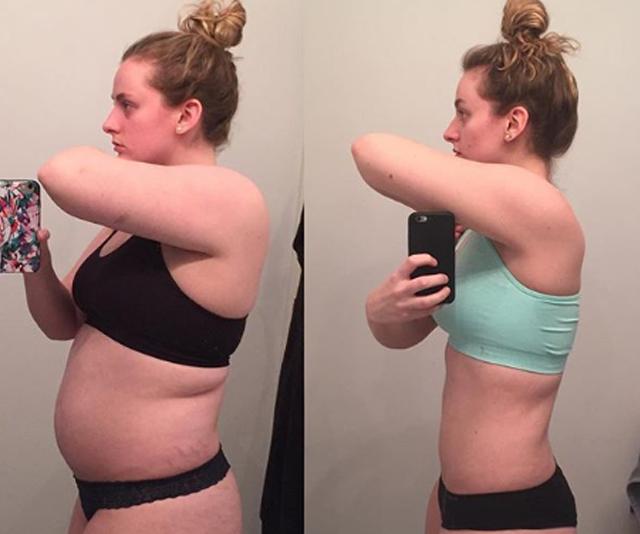Without a doubt, one of this year’s most controversial diets has been the ketogenic ‘keto’ diet.
Despite the U.S News & World Report listing the ketogenic diet as last (tied with the Dukan diet) in their evaluation of the best 40 diets for 2018, Google searches for the keto diet in the US has tripled since July 2017 to July 2018.
Perhaps interest has piqued because of the diet’s alleged ability to help people lose weight, or maybe it’s the public has been swayed by the number of celebrities that have reportedly gotten on board with the diet.
Celebrities including Halle Berry, Kim Kardashian, Vanessa Hudgens, Gwyneth Paltrow, Megan Fox and LeBron James are apparently fans of the high fat, low carb keto diet – but what actually does the diet entail?
Of the keto diet, nutritionist Samantha Gemmell says: “The ketogenic diet is a very low carbohydrate, high fat diet approach. The goal is to reduce your carbohydrate intake to below 50g or even 30g of net carbs (carbs minus fibre) per day. This switches your main body energy system from using glucose (from sugars/carbs) to using ketones (from fat).”
Feng-Yuan Liu, dietitian and founder/CEO of Metro Dietetics, says on the ketogenic diet people need to get into a nutritional state of ketosis, characterised by blood ketone levels of 0.5mmol/L or higher.
“To achieve this, carbohydrate intake is reduced and restricted to a level that will allow for fats to be consistently broken down and used as fuel.
“How much the carbohydrates need to be restricted will vary person to person, based on health status, as well as metabolic and hormone function.”

The foods you can and can’t eat on the Keto diet
According to nutritionist Samantha Gemmell, these are the foods you can and can’t eat when on the Keto diet:
Foods that you can eat include:
• Meat
• Poultry
• Fish and seafood
• Low carbohydrate vegetables e.g. broccoli, cauliflower, zucchini, spinach
• Low carbohydrate fruits e.g. strawberries, blueberries
• Small amounts of moderate carbohydrate vegetables such as carrot (when the daily carbohydrate count allows)
• Nuts and seeds
• Oils (olive oil, coconut oil, avocado oil)
• Low carbohydrate dairy products e.g. cream, cheese, some yoghurts
• Low/no calorie sweeteners such as stevia
Foods that are usually excluded are:
• Grains including wheat, barley, rice, oats and corn
• Legumes e.g. chickpeas, lentils, beans
• Pseudograins e.g. quinoa, buckwheat
• High carbohydrate vegetables e.g. sweet potato, potato
• High carbohydrate fruits e.g. bananas, mangos, dates, watermelon
• Soft drinks sweetened with sugar
• Processed foods with a high carbohydrate content e.g. baked goods, chips
Here’s a complete run-down of the fruit you can and can’t eat on keto

Keto diet for weight loss
The keto diet first became popular in the 1920s and ’30s as a way to treat epilepsy, and is now popular among those trying to lose weight.
But is the keto diet good for weight loss or is this just a myth?
Samantha Gemmell suggests the reason some people see rapid weight loss on the keto diet is because during the first week or two the weight loss is likely not all fat. Additionally, the change in diet (particularly the reduced consumption of processed foods) will have its impact.
“When you eliminate carbohydrates, you eliminate the ‘hydrate’, or water, that is found in those foods. So it is generally a reduction in water weight and any fluid retention,” says Gemmell. “You will be eliminating a lot of processed and high-sugar foods. So you may be consuming fewer calories.”
After the first few weeks your body will be running on its fat reserves rather than sugar and carbohydrates.
Dr Ryan Harvey from House Call Doctor says on the keto diet the body is forced to run on fat, therefore making it burn at an increased rate – which is an appealing thought for many.
“It can be a fast approach to weight loss but may not be effective long-term. It is always recommended to simply eat healthily and exercise regularly when looking to lose weight. Consult with your regular doctor before starting a diet in case there may be any potential medical risks.”
The U.S News & World Report‘s evaluation of the best diets for 2018, are in line with Dr Harvey’s thoughts. The two best diets of 2018 – with input from a panel of health experts – ranked the DASH diet and the Mediterranean diet as the most healthy – both of which focus on the consumption of healthy foods (including carbohydrates) and less processed foods.

A healthy diet and regular exercise is the best way to lose a few kilos.
Is the Keto diet good for us?
While some argue that depriving the body of carbohydrates isn’t healthy, others say that it can help us restore healthy, normal physiology, meaning our bodies will return to functioning the way they were originally designed to function.
Feng-Yuan Liu, dietitian and founder/CEO of Metro Dietetics agrees with this, explaining that many of today’s common health problems could be alleviated with proper nutrition.
“So many of our current chronic health problems are easily preventable, and are also reversible through nutrition. If you think about it, these days, we all know someone with high cholesterol, high blood pressure, high blood glucose levels, joint inflammation, depression, anxiety, food intolerances, thyroid problems and weight issues.
“These issues weren’t always there in the abundance we see it today. It may seem shocking at first, but when we realise how far away from where things used to be, even a century ago, we’ll start to realise that it really isn’t all that much of a surprise. Our grandparents grew up with less persistent stress, no constant dinging of mobile phones. They ate freshly cooked meals, and everything was full fat. If they wanted a snack, they had to make it themselves, or buy it during business hours. Produce was local, fresh and seasonal.
“When we look at the prevalence of heart disease, diabetes, obesity and cancers pre-1950, it was very uncommon. So what changed in the last 60, 70 years? Our diet – and stress levels.
“I’ve personally used and witnessed a ketogenic diet reversing diabetes, gout, shrink tumours, normalise and stabilise blood glucose and blood pressure, and reverse cardiovascular disease risk. In addition, I have used a ketogenic diet to help my husband completely come off all meds for his Crohn’s Disease (and as a side effect, lose 25kgs), and have halted all symptoms and pain of my own PCOS and endometriosis.”
However, like all diets, it needs to work for the individual. Some people might thrive on the keto diet whereas others may find it’s not for them – it’s all about finding out what works best for our bodies.
Samantha Gemmell says: “Like most diet approaches, it can be healthy if it suits your body and if you are conscious of what you eat. If you are considering the ketogenic diet, your best bet is to consult with a nutrition practitioner who has worked with keto before.”

Before you consider changing your diet or eating plan, be sure to speak to your GP and a dietitian or nutritionist first.

